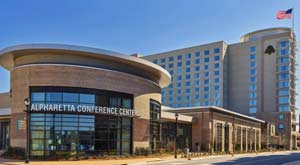Conference Agenda
Technical Course for Allied Health Professionals
April 4, 2024
“Igniting Innovation in the Changing Landscape of Sleep Technology”
About this Course
Innovative technology is playing a crucial role in the field of sleep disorders medicine, significantly impacting the work of sleep technologists. These professionals not only need to possess advanced skills to carry out their duties effectively but also need to apply their knowledge to a diverse and increasingly unwell population.
The advent of technology has brought about a remarkable transformation in the treatment of sleep disorders. The invention of Continuous Positive Airway Pressure (CPAP) in the 1980s revolutionized the management of snoring and sleep apnea. Over the years, CPAP therapy has undergone significant advancements, becoming quieter and more user-friendly. The introduction of AutoCPAP has led to wider prescription rates, and the integration of devices into cloud-based systems has facilitated data collection and therapy adjustments. Home sleep testing, telemedicine, improved access to education, advanced scoring systems, and data collection mechanisms are rapidly reshaping the field of sleep technology. Furthermore, artificial intelligence is revolutionizing healthcare and sleep medicine, ultimately enhancing patient care.
However, it is important to acknowledge that certain concerns accompany these advancements in sleep technology. While there is a pressing need to improve the diagnosis and treatment of sleep disorders in modern society, it is crucial not to overlook the significance of the human touch in delivering high-quality patient care. As sleep technology continues to evolve, it is imperative to preserve the human element, as it forms the foundation for helping patients enhance their lives by improving their sleep. Additionally, the digital transformation of healthcare, particularly in the diagnostic realm, is continuously progressing. The full potential of analytics, machine learning, and other digital tools is yet to be fully understood or adequately valued.
Course Objectives
- Describe best practices to handle emergencies in the sleep center
- Review the future of sleep technology
- Define innovations for the sleep technologist role
- Identify areas beyond patient care that define roles in sleep technology
Thursday, April 4, 2024
7 Contact Hours
| 8:00-8:45 AM | Keynote Presentation: Approaches to Building a Direct Ship Home Sleep Testing Program | Hitendra Patel, MD |
| 8:45-9:30 AM | Guest Lecture: Transitions in Sleep Centers for a 2030 Strategy—The Story of Evolution at One Sleep Center | Daniel Herold, RPSGT, FAAST |
| 9:30-10:15 AM | Comparative Efficacy of Advanced PAP Titrations | Byron Jamerson, RPSGT, RRT, CCSH |
| 10:15-10:30 AM | Refreshment Break | |
| 10:15-11:00 AM | Right Patient, Right Device, Right Time | Rose Batenhorst, RPSGT, RRT |
| 10:30-11:15 AM | Invited Lecture:Navigating the Landscape of Sleep Medicine and Resistance to Innovation | Colleen Lance, MD |
| 11:15–12:00 PM | Techniques for Attracting and Maintaining Your Employees | Massey Arrington, RPSGT, CCSH |
| 12:00–1:00 PM | Lunch | |
Afternoon Forum
| 1:00-2:30 PM | Symposium:The Scope of Navigation for Sleep Technologists Extends Beyond the Management of Sleep Apnea: Utilizing Navigation to Manage Co-Morbid Conditions | Navigation Team from Wellstar Health System: Kelly Gladden, RRT, RPSGT, RST, CCSH Keir M. Noe, RPSGT, RST, CCSH Donnie Brown-Hill, MPH, RPSGT, CPC, CCSH Kimberly J. Balie, RPSGT, CCSH |
| 2:30-3:15 PM | Mastering Sleep Coaching Enhances Sleep Patients Outcomes | Tina Garrett, MSc, RPSGT, RST, CCSH |
| 3:15–3:30 PM | Refreshment Break | |
| 3:30–4:15 PM | The compatibility of AI with sleep technology. What the future holds | Daniel Herold, RPSGT, FAAST |
| 4:15–5:30 PM | Proven approaches for seamlessly integrating Artificial Intelligence into the Sleep Center to streamline and improve daily operations | Massey Arrington, RPSGT, CCSH |
Southern Sleep Society 46th Annual Meeting
April 5-7, 2024
“New Approaches in Understanding and Management of Sleep Disorders: The role of Evidenced-Based Medicine and Research”
About the Conference
The practice of sleep medicine is constantly influenced by technology. These are exciting times of innovation, as there are numerous products available that are specifically designed to improve sleep. Data-driven sleep applications are becoming more widely used, and there are now various apps, wearable technology, and home sleep testing options not only for clinicians but also for patients. Many technologies aim to optimize the sleep environment by regulating factors such as light, noise, temperature, and humidity, all of which contribute to healthy sleep. New interventions for snoring, sleep apnea, circadian disorders, and insomnia have also emerged. Telemedicine is experiencing growth, allowing for better management of patients and increased access to board-certified sleep physicians, who will continue to play a central role in treating sleep disorders. As technology continues to evolve, artificial intelligence may even provide helpful guidance in managing chronic conditions like insomnia. Cognitive behavioral therapy for insomnia (CBTI) is now more accessible, and there are new innovations and insights available to change the way sleep disorders are diagnosed, managed, and treated. With the integration of technology and new approaches, physicians will be guided towards better outcomes, leading to a more promising future in sleep medicine through clinical research and comprehensive clinical practice.
Objectives
- Learn how to manage co-morbid conditions associated with sleep apnea.
- Discuss how novel practices related to sleep-disordered breathing will improve outcomes.
- Implement expanded knowledge of sleep disorders into clinical practice.
- Apply new methodology and technology, including sleep telemedicine and dental sleep medicine, into clinical practice.
- Identify and understand the management and treatment of parasomnias.
Friday, April 5, 2024
7.0 Contact Hours
| 7:00 AM | Breakfast – Visit Exhibits | |
| 8:45–9:30 AM | Video Diagnosis of Parasomnia Versus Seizure Disorder/em> | Romy Hoque, MD |
| 9:30-10:15 AM | Optimizing Sleep in Hospitalized Patients | Carl Boethel, MD |
| 10:15–10:45 AM | Refreshment Break with Exhibitors | |
| 10:45–11:15 AM | The Sociocultural Factors that influence Sleep and Health Care Disparities | Dayna Johnson, PhD |
| 11:15–12:00 PM | Inflammation and Disordered Sleep in Depression: Mechanisms and Therapeutic Implications | Jennifer Felger, PhD |
| 12:00–1:15 PM | Jazz Pharmaceuticals Product Theatre Luncheon | |
| 1:15-2:00 PM | Sleep in Psychiatric Inpatients | Mary Rose, PsyD and Sophia Lail, DO |
| 2:00 - 2:15 PMM | Founder’s Presentation: TBA | TBA |
| 2:15-2:45 PM | Decoding Insomnia and the Role of Medications | Nilgun Giray, MD |
| 2:45–3:00 PM | Founder’s Presentation | Dr. Randa Zayed |
| 3:00–3:30 PM | Refreshment Break with Exhibitors | |
| 3:30–4:00 PM | Unique Problems Inspire Solutions | Puneet Aulakh, MD |
| 4:00-4:15 PM | <Founder’s Presentation: TBA | TBA |
| 4:15–4:45 PM | An Overview of Obesity Hypoventilation Syndrome | Sai Venkateshiah, MD |
| 4:45-5:15 PM | Supriya Singh, MD | |
| 5:15–6:00 PM | SSS Business Meeting | |
| 6:15–8:00 PM | Founder’s Reception/Awards Ceremony – Hosted by Nox Medical 100 Kimball Place, Suite 100 - Alpharetta, GA (Transportation Provided) | |
Saturday, April 6, 2024
4.75 Contact Hours
| 8:00-8:45 AM | Keynote Presentation: The Spectrum of Sleep Related Injury and Violence> | Carlos Schenck, MD |
| 8:45-9:45 AM | Symposium: Bridging Diagnostic Guidelines for Rapid Eye Movement Sleep Behavior
Disorder with Clinical Care and Why it Matters
|
|
| 9:45–10:15 AM | Refreshment Break with Exhibitors | |
| 10:15–11:00 AM | Invited Lecture: A Successful HSAT Program | Nancy A. Collop, MD |
| 11:00–12:30 | Symposium: Exploring the Intersection of Artificial Intelligence and Big Data in
Sleep Medicine
|
Moderator - Carlos H. Schenck, MD |
| 12:30-1:15 PM | Sleep in Cognitively Impaired Older Adults: Research Findings and Practice Recommendations | Kathy Richards, PhD |
| 12:00 PM | Exhibits Close | |
| 1:30 PM | Annual Golf Outing at RiverPines Golf Course | \Johns Creek, GA |
Sunday: April 7, 2024
3.75 Contact Hours
| 7:30 AM | Breakfast | |
| 8:00-8:45 AM | Keynote Presentation | David B. Rye, MD, PhD |
| 8:45-9:30 AM | What Medical Providers should know about CBTI, BBTI and Acceptance and the Behavioral Changes to Treat Insomnia (ABC) | Carissa Balderas, PhD & Sharon Shatil, PhD |
| 9:30-10:15 AM | Choosing Wisely: Stimulants for Diseases of Central Hypersomnia | Dr. Mariam Louis |
| 10:15–10:30 AM | Refreshment Break | |
| 10:30–11:15 AM | Outpatient use of High Flow Ventilation in Children’s Obstructive Sleep Apnea and Outcome of Quality of Life | Sharhiar Shahzeidi, MD |
| 11:15–12:00 PM | Wearable Sleep Trackers | Barry G. Fields, MD |
ACCME Statement
This activity has been planned and implemented in accordance with the accreditation requirements and policies of the Accreditation Council for Continuing Medical Education (ACCME) through the joint providership of The American Academy of Sleep Medicine and the Southern Sleep Sleep Society. The American Academy of Sleep Medicine isaccredited by the ACCME to provide continuing medical education for physicians.
AASM designates this live activity for AMA PRA Category 1 Credits™:
- Southern Sleep Society 2024- Maximum of 15.25
AASM Continuing Education Credits (CECs) for sleep technologists are offered for this live activity. AASM designates this live activity for AASM CECs:
- Southern Sleep Society 2024- Maximum of 15.25
- The AASM will issue all other non-physicians a letter of attendance for activities designated for AMA PRA Category 1 Credits™.
- Physicians and all other participants should claim only the credit commensurate with the extent of their participation in the activity.



